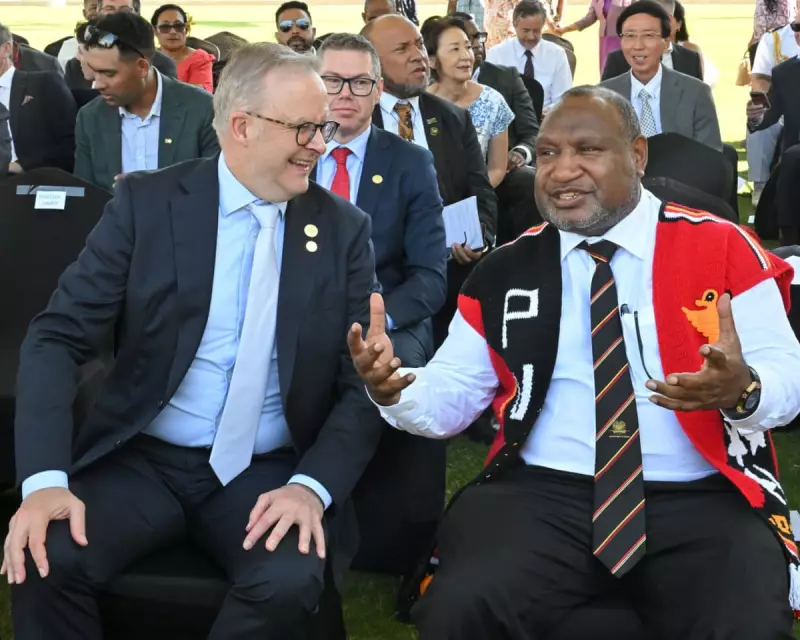
A crucial defence and security treaty between Australia and Papua New Guinea has hit a major roadblock, casting doubt on its timely implementation and raising strategic concerns in the Pacific region.
The agreement, which was personally championed by Australian Prime Minister Anthony Albanese and his PNG counterpart James Marape, is facing significant internal opposition within Papua New Guinea's parliament. This resistance has forced a delay in ratification that could extend for several months.
Geopolitical Stakes in the Pacific
The stalled treaty comes at a critical juncture for regional security. Australia views the pact as a vital component of its strategy to counter China's expanding influence in the Pacific islands. The delay provides China with an opportunity to strengthen its diplomatic and economic ties with PNG while Australian efforts remain in political limbo.
Prime Minister Albanese had initially pushed for swift ratification, emphasising the treaty's importance during his visit to PNG last year. However, PNG lawmakers have raised concerns about potentially compromising the nation's sovereignty and have called for more thorough scrutiny of the agreement's provisions.
Key Points of Contention
The proposed treaty includes several sensitive provisions that have drawn criticism from PNG parliamentarians:
- Enhanced Australian defence personnel presence in Papua New Guinea
- Joint development of PNG's defence infrastructure
- Increased security cooperation and intelligence sharing
- Joint training exercises and capacity building programs
Opposition leaders in PNG argue that the agreement requires more comprehensive debate to ensure it serves Papua New Guinea's national interests rather than simply aligning with Australian foreign policy objectives.
Regional Implications
The delay has significant implications for regional security architecture. Australia had positioned this treaty as a cornerstone of its Pacific engagement strategy, particularly following China's security pact with Solomon Islands in 2022.
Analysts suggest that prolonged delays could encourage other Pacific nations to seek alternative partnerships, potentially weakening Australia's strategic position in the region. The Australian government remains publicly confident about eventual ratification but is privately concerned about the timeline and potential amendments that might dilute the treaty's effectiveness.
As diplomatic efforts continue behind the scenes, both governments face increasing pressure to address domestic concerns while maintaining their strategic partnership in an increasingly contested region.





